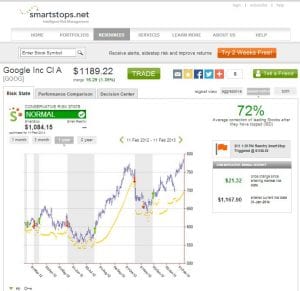Google Inc (NASDAQ:GOOG) is often thought of as one of the great technology companies in the US and around the world. While Google certainly is known for its search engine and laid back corporate culture, the tech giant is beginning to move into other territories dominated by other tech giants. In Google’s recent earnings conference call, management stated they would revamp Google Shopping and offer unlimited same day delivery, calling the new segment Google Shopping Express. As you can see, this is a direct swipe at Amazon.com, Inc. (NASDAQ:AMZN) and its dominant position as the “go-to” online retailer. Forrester came out with a study that said 30% of US shoppers online “during the third quarter” went directly to Amazon to look for a purchase, compared to 13% who began the search on a search engine.
Google does not shy away from competition. Just think back to Google-backed Android smartphones entering the mobile phone market in an effort to be viable alternative to the Apple Inc. (NASDAQ:AAPL) iPhone. Now Google has its sights on Amazon. During the passed few quarters, Amazon has increasingly attempted to beef up its advertising network in an attempt to bring in higher margin revenue. Currently, the company is making around $500 million on its ad business. “There were 6.7 billion display ad impressions on Amazon.com in the third quarter, more than triple the number in the same period of 2011, according to comScore” (Forbes).
Feeling Amazon making strides, Google fights back by attempting to create a viable online shopping experience that rival’s Amazon. Additionally, Amazon Prime is the company’s free two day shipping service that costs around $79 per year. Google’s new same day free shipping service is rumored to cost around $64-69 a year, clearly underpinning Amazon’s offer. Google Shopping Express works by having consumers shop at their favorite retailers such as “Target Corporation (NYSE:TGT), Walgreen Company (NYSE:WAG), Toys “R” Us, Office Depot Inc (NYSE:ODP)”, and more. Then the shopper selects the delivery time period that works for them. Consumers can now shop online and receive goods the same day, without leaving their homes.
Even eBay Inc (NASDAQ:EBAY) has entered the same day delivery competition through its service called eBay Now. According to Business Journal’s Shana Lynch, while Google Shopping Express had a better response time for delivery and a better ordering user interface, eBay had the superior customer service and text updated delivery telling the customer where their goods are. While this highlights some additional adjustments that Google needs to make, Google’s brand will be hard to beat over the long term.
While Amazon is still clearly the king of online shopping, Google could soon close the gap and gain more ad revenue in the process. This is due to the fact that research has shown that placing ads on a shopping site, where consumers are looking to make purchases rather than just searching around the web, is a more effective ad campaign. Considering 96% of Google’s revenue comes from ad revenue, if the company were able to derive a significant chunk of market share from Amazon, would ad revenue rise as well?
All things considered, Google certainly has long term plans to growth and further domination of the tech world. That being said, success is rarely a straight line and long term investors need to be prepared during times of elevated risk to protect their holdings from extreme losses. This is where sites like SmartStops.net comes in. The risk management service tells subscribers when a stock is facing elevated risk, giving the investor time to hedge their position or sell to lock in profits.
SmartStops saved Google investors a pretty penny back in 2011. In early January 2011, Google topped out around $630 a share. On January 3, 2011, SmarStops issued an alert to investors saying elevated risk ahead on shares of Google. Then in late April 2011, SmartStops again told Google investors that more downside was likely around $565, just before the stock’s collapse to $460. Investors could have saved over $150 a share in potential losses had they listened.

Source: SmartStops
In the end, it is hard to speculate the end result of Google Shopping Express. Currently, the service is only offered to people living in the San Francisco Bay Area, but through expansion, can this service be a real competitor to Amazon and its Prime service? Amazon certainly has a lot to lose if it is not careful. With margins continuing to be squeezed and sky high valuation, Amazon must tread lightly. The bottom line is investors must remain diligent and hedge their positions accordingly to prevent major losses.









